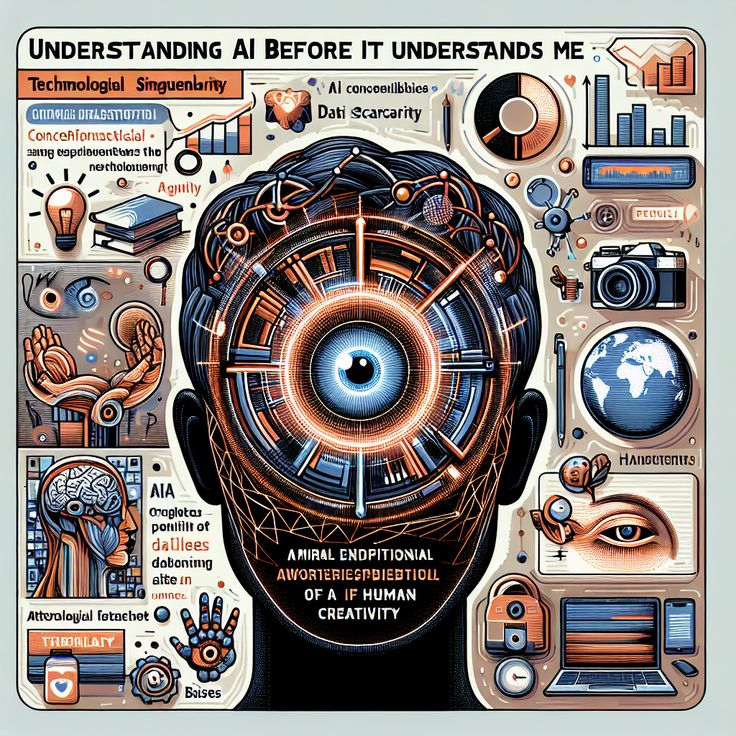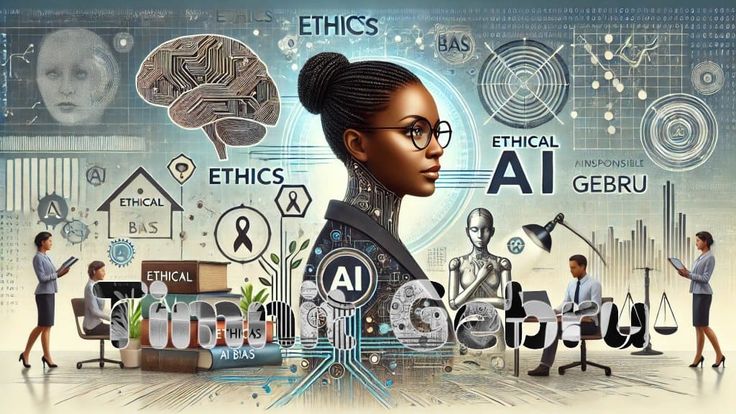Table of Contents
Published: March 28, 2025 | By WorldAffair.org
Artificial Intelligence (AI) is no longer a concept of the future—it is shaping the world today, influencing economies, industries, and international relations. By 2025, AI has evolved from a buzzword to a critical tool in the geopolitical landscape. Governments and tech giants alike are scrambling to establish leadership in AI, recognizing its potential to reshape global power dynamics, security frameworks, and economic competitiveness.
In this blog post, we will explore the role of AI in geopolitics in 2025, how major countries are competing to dominate this technology, and the implications it has on international relations, cybersecurity, and global governance.

🌍 The AI Arms Race: A New Cold War?
AI has emerged as one of the most significant technological battlegrounds in modern geopolitics. As countries race to develop AI technologies, it’s becoming clear that whoever controls the most advanced AI systems will hold the most power on the world stage. This has led to what some experts are calling a new “AI arms race.”
Key Players in the AI Race
The global AI race is primarily being driven by three major powers: the United States, China, and the European Union. Each of these actors is employing different strategies to dominate the AI landscape:
- The United States: Historically the leader in technology and innovation, the U.S. remains a key player in the AI race. Major American tech giants like Google, Microsoft, and Amazon are at the forefront of AI research and application. The U.S. government is also increasing its investment in AI to maintain its competitive edge and address national security concerns.
- China: China is investing heavily in AI, with its Made in China 2025 plan placing AI at the center of its strategy. By 2025, China has emerged as a strong contender to lead in AI, particularly in data-driven AI applications such as facial recognition and surveillance technologies. The Chinese government is pushing forward its agenda of AI for societal control, creating smart cities and surveillance systems powered by AI.
- The European Union: While not as advanced in the private sector as the U.S. or China, the EU is focusing on ethical AI development and regulatory frameworks. The European Commission is working on building AI systems that are transparent, fair, and secure, while also introducing policies to protect citizens’ rights and privacy.
Geopolitical Implications of AI Leadership
The nation that leads in AI will not only dominate the technological space but also gain significant geopolitical power. Here are some key implications:
- Military AI: AI has the potential to revolutionize warfare. Countries are now racing to develop AI-powered autonomous weapons systems, drones, and cyber warfare tools. The use of AI in defense raises important ethical and strategic concerns about the future of warfare, with AI potentially reducing human oversight and increasing the speed of decision-making on the battlefield.
- Economic Competitiveness: AI is a key driver of economic productivity. Countries that dominate AI will have an economic advantage in sectors like manufacturing, finance, healthcare, and transportation. The global economy could become increasingly polarized, with AI superpowers gaining an upper hand in trade and global influence.
- Cybersecurity and Surveillance: The rise of AI has brought both opportunities and challenges in cybersecurity. While AI can help detect and respond to cyber threats faster than humans, it also poses new risks, as state and non-state actors can use AI to launch cyberattacks and data breaches.
In this new geopolitical era, AI is not just a technological tool but a central element of international strategy.

🔐 AI and National Security: A Double-Edged Sword
As AI continues to evolve, its implications for national security and global governance become more pronounced. Countries are developing AI systems for defense, surveillance, and intelligence, leading to new challenges in cybersecurity and privacy.
AI in National Security
- Military AI: AI is revolutionizing military capabilities, with AI-powered drones, autonomous robots, and weapons systems becoming an integral part of defense strategies. Countries are now investing in AI-driven military technologies that can operate autonomously, potentially changing the nature of warfare.
- Cybersecurity: AI is a critical tool for both defensive and offensive cyber operations. Governments are leveraging AI to enhance their cyber defenses, detect threats in real-time, and conduct cyber espionage. However, the proliferation of AI-driven cyberattacks is also a growing concern, as adversaries could launch sophisticated attacks without detection.
AI and Privacy Concerns
While AI offers numerous advantages in security, it also raises significant concerns about privacy and civil liberties. The use of AI in surveillance systems has sparked debates about the extent to which governments can monitor their citizens.
- China’s Surveillance State: China has made headlines for its use of AI in creating a nationwide surveillance system. With the help of AI-powered facial recognition and social credit systems, the Chinese government is monitoring citizens’ behavior in real-time. While China claims that this system is designed to improve public safety, critics argue that it infringes on individual privacy and freedom.
- Western Responses: In response to China’s growing use of surveillance, Western nations are considering their own regulatory frameworks for AI. The European Union has been at the forefront of AI ethics, calling for systems that respect human rights and ensure transparency in AI decision-making.
The growing role of AI in national security brings up tough questions about the balance between ensuring safety and protecting individual freedoms.

🌐 AI and Global Governance: Who Should Regulate AI?
As AI becomes a driving force in geopolitics, global governance structures must address how to regulate and manage AI technologies. While AI has the potential to solve many global problems, it also presents significant risks that require international cooperation.
Global AI Regulation
The United Nations and other international bodies are starting to focus on how to regulate AI. As countries continue to develop their own AI systems, questions about ethical standards, data privacy, and AI-driven inequality must be addressed.
- AI Ethics: The EU’s focus on AI ethics provides a model for how countries might work together to ensure that AI development is aligned with human rights and democratic values. The global community is increasingly recognizing the need for standards that protect privacy, non-discrimination, and accountability in AI systems.
- International AI Governance: Given the global nature of AI, there is a growing need for international cooperation to set standards, particularly in areas like military AI, privacy protection, and AI’s impact on the economy. AI diplomacy is becoming an emerging field as countries attempt to work together to establish a framework for the responsible use of AI technologies.
The regulation of AI will require coordinated global efforts, as unilateral approaches will only exacerbate geopolitical tensions.

🔮 The Future of AI in Geopolitics: Opportunities and Challenges
Looking ahead, AI will continue to shape the future of global politics. As countries vie for technological dominance, the geopolitical landscape will be increasingly defined by technological innovations.
Opportunities for AI
- Economic Growth: Countries that lead in AI will benefit from significant economic advantages, particularly in sectors like manufacturing, healthcare, and digital services.
- Global Collaboration: AI has the potential to solve global problems, such as climate change and healthcare access, by enabling data-driven solutions and predictive analytics.
Challenges for AI in Geopolitics
- Military AI and Autonomous Weapons: The deployment of autonomous weapons powered by AI could lead to new arms races and conflicts.
- Geopolitical Rivalries: As AI becomes a central tool of national power, international competition and conflict are likely to intensify.
- Ethical Dilemmas: The rise of AI raises fundamental ethical questions about privacy, security, and the concentration of power in the hands of a few countries and corporations.

✍️ Conclusion
The rise of AI is undoubtedly one of the most transformative forces in global geopolitics. In 2025, countries are racing to dominate AI, recognizing its power to shape not only economies but also the balance of global power. As AI continues to evolve, it will create new opportunities for global cooperation and innovation, but also present challenges that must be addressed through international collaboration and governance.
The future of AI will define the next era of global relations, and the way we manage its development will determine whether it becomes a force for good or a source of new geopolitical conflicts.
Author Profile
- Syed Tahir Abbas is a Master's student at Southwest University, Chongqing, specializing in international relations and sustainable development. His research focuses on U.S.-China diplomacy, global geopolitics, and the role of education in shaping international policies. Syed has contributed to academic discussions on political dynamics, economic growth, and sustainable energy, aiming to offer fresh insights into global affairs.
Latest entries
 Japanese PoliticsSeptember 6, 2025Prince Hisahito’s Coming-of-Age and Japan’s Male-Only Succession Dilemma
Japanese PoliticsSeptember 6, 2025Prince Hisahito’s Coming-of-Age and Japan’s Male-Only Succession Dilemma GeopoliticsAugust 23, 2025Previewing the White House Visit of South Korean President Lee Jae Myung
GeopoliticsAugust 23, 2025Previewing the White House Visit of South Korean President Lee Jae Myung Middle East ConflictJuly 22, 2025Israel’s Deadly Attacks on Gaza: A Dire Humanitarian Crisis and International Calls for a Truce
Middle East ConflictJuly 22, 2025Israel’s Deadly Attacks on Gaza: A Dire Humanitarian Crisis and International Calls for a Truce Middle East & North AfricaJuly 20, 2025Israel Targets Damascus Amid Rising Tensions in Syria
Middle East & North AfricaJuly 20, 2025Israel Targets Damascus Amid Rising Tensions in Syria

